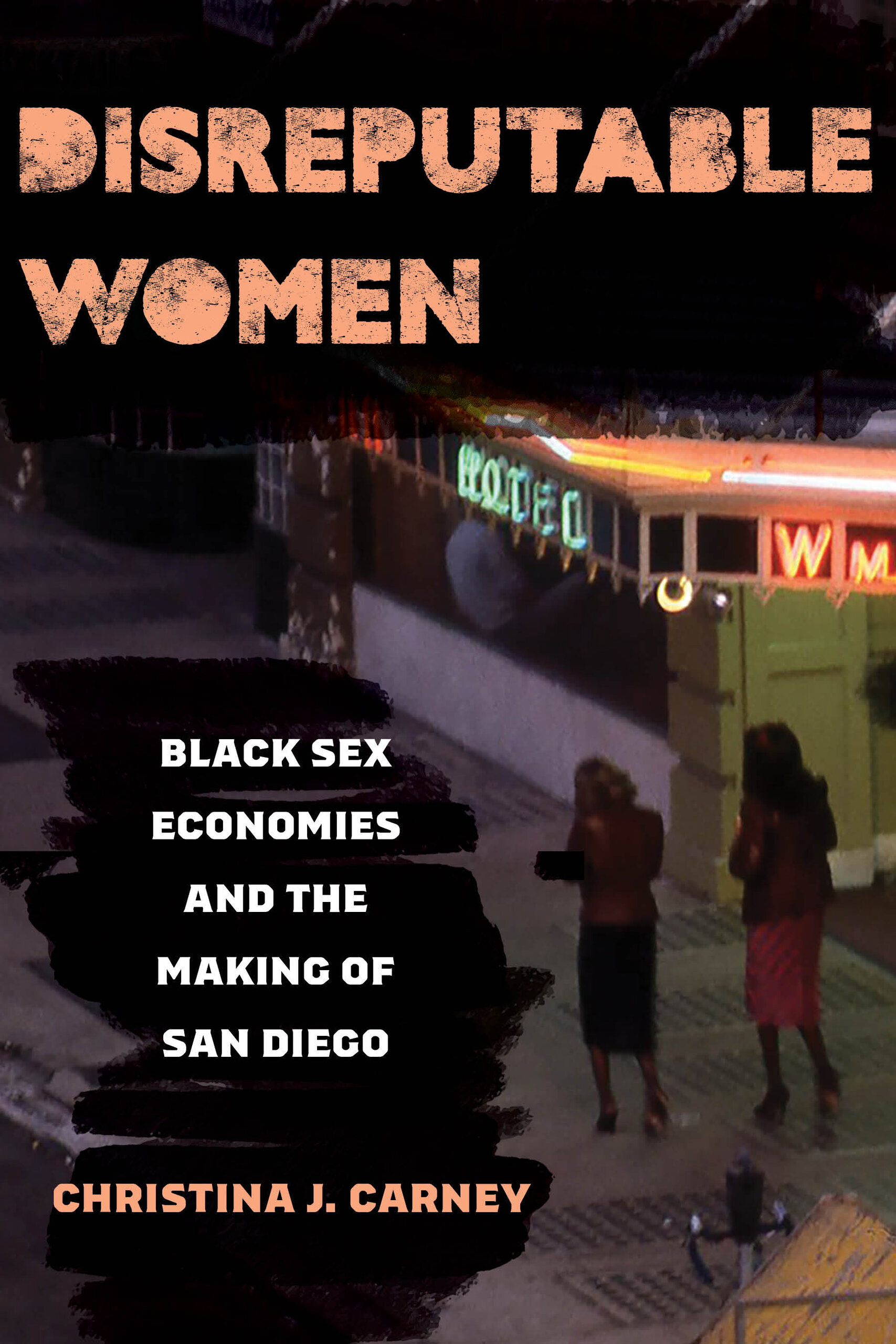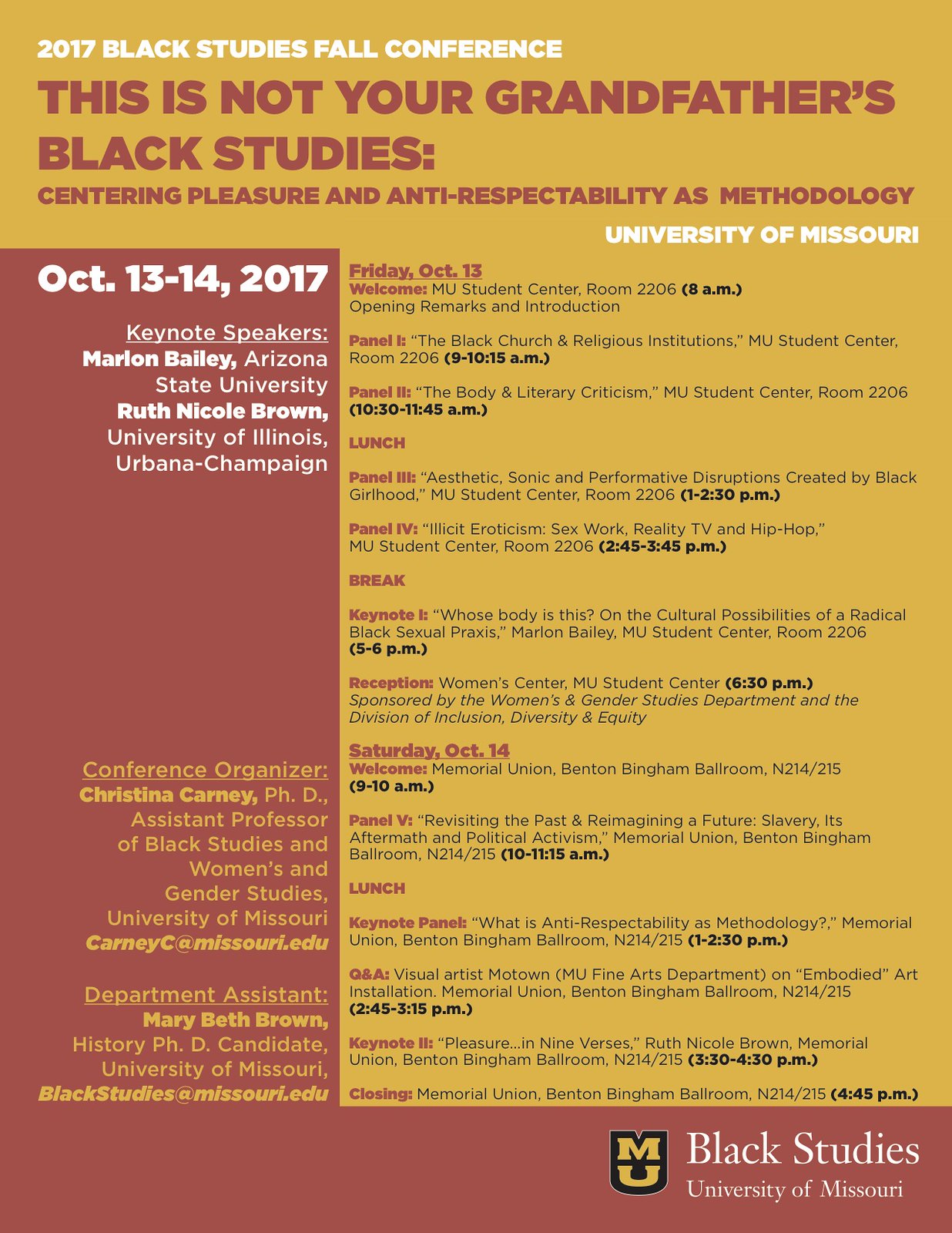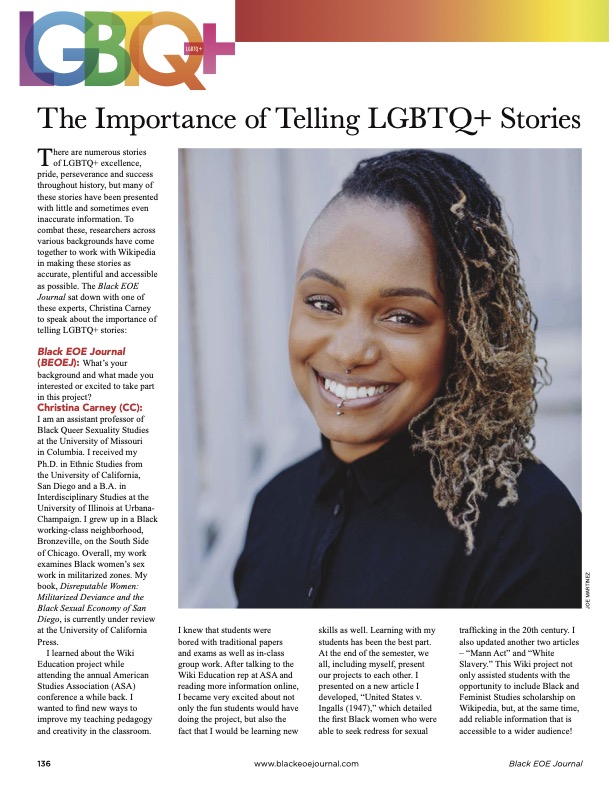Christina Carney
EDUCATION
2016 Ph.D. Ethnic Studies, University of California at San Diego
2008 B.A. Interdisciplinary Studies, University of Illinois at Urbana-Champaign
TEACHING & RESEARCH
As a scholar, my thinking is guided by a strong commitment to advancing the intersectional and interdisciplinary study of race, sexuality, gender, ethnicity, and culture through research, teaching, and service with areas of research specialization including black feminisms and global black sexualities along with sex work, critical trafficking and carceral studies. My work has been supported by the University of Missouri Research Board, Institute for Citizens and Scholars (formerly the Woodrow Wilson Fellowship Foundation), and US Fulbright Scholars Program. While my first book examined how the sexual policing of Black women sex workers was foundational to the city of San Diego’s development as a center of tourism and the military, my current project takes a more global and transhistorical approach by examining how heritage tourism in Brazil engenders new sex economies and forms of relationality in the African Diaspora. I also serve on the editorial board for African and Black Diaspora: An International Journal.
SELECTED PUBLICATIONS

CLASSES TAUGHT
Undergraduate
Gender and Identity: Understanding Intersectionality
Historical Studies of Black Women
Black Sexual Politics
Introduction to Black Studies
Mixed Level Courses (Advanced Undergraduate and Graduate)
Black Feminism: Past and Present


